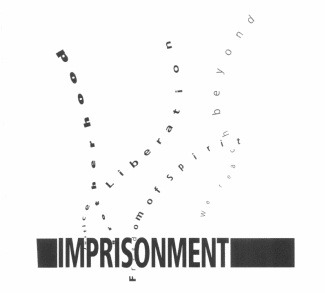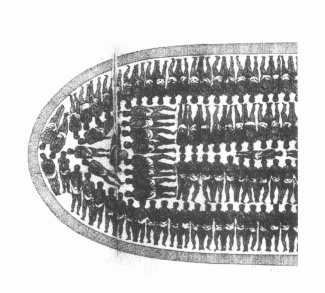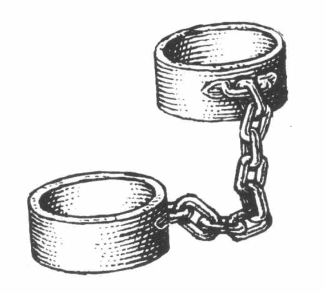We northerners are undoubtedly descended from barbarian races, also in respect to our talent for religion: we have little talent for it.
Supposing one were able to view the strangely painful and at the same time coarse and subtle comedy of European Christianity with the mocking and unconcerned eye of an Epicurean god, I believe there would be no end to one's laughter and amazement: for does it not seem that one will has dominated Europe for eighteen centuries, the will to make of man a sublime abortion?
-- Friedrich Nietzsche, Beyond Good and Evil
The reading from the vantage of a distant star of the capital letters of our earthly life, would perchance lead to the conclusion that the earth was the especially ascetic planet, a den of discontented, arrogant, and repulsive creatures, who never got rid of a deep disgust of themselves, of the world, of all life, and did themselves as much hurt as possible out of pleasure in hurting — presumably their one and only pleasure. Let us consider how regularly, how universally, how practically at every single period the ascetic priest puts in his appearance: he belongs to no particular race; he thrives everywhere; he grows out of all classes. Not that he perhaps bred this valuation by heredity and propagated it — the contrary is the case. It must be a necessity of the first order which makes this species, hostile, as it is, to life, always grow again and always thrive again. — Life itself must certainly have an interest in the continuance of such a type of self-contradiction. For an ascetic life is a self-contradiction: here rules resentment without parallel, the resentment of an insatiate instinct and ambition, that would be master, not over some element in life, but over life itself, over life's deepest, strongest, innermost conditions; here is an attempt made to utilise power to dam the sources of power; here does the green eye of jealousy turn even against physiological well-being, especially against the expression of such well-being, beauty, joy, while a sense of pleasure is experienced and sought in abortion, in decay, in pain, in misfortune, in ugliness, in voluntary punishment, in the exercising, flagellation, and sacrifice of the self. All this is in the highest degree paradoxical: we are here confronted with a rift that wills itself to be a rift, which enjoys itself in this very suffering, and even becomes more and more certain of itself, more and more triumphant, in proportion as its own presupposition, physiological vitality, decreases....
Granted that such an incarnate will for contradiction and unnaturalness is induced to philosophise; on what will it vent its pet caprice? On that which has been felt with the greatest certainty to be true, to be real; it will look for error in those very places where the life instinct fixes truth with the greatest positiveness. It will, for instance, after the example of the ascetics of the Vedanta Philosophy, reduce matter to an illusion, and similarly treat pain, multiplicity, the whole logical contrast of "Subject" and "Object" — errors, nothing but errors! To renounce the belief in one's own ego, to deny to one's self one's own "reality" — what a triumph! and here already we have a much higher kind of triumph, which is not merely a triumph over the senses, over the palpable, but an infliction of violence and cruelty on reason....But let us, forsooth, my philosophic colleagues, henceforward guard ourselves more carefully against this mythology of dangerous ancient ideas, which has set up a "pure, will-less, painless, timeless subject of knowledge"; let us guard ourselves from the tentacles of such contradictory ideas as "pure reason," "absolute spirituality," "knowledge-in-itself": — in these theories an eye that cannot be thought of is required to think, an eye which ex hypothesi has no direction at all, an eye in which the active and interpreting functions are cramped, are absent; those functions, I say, by means of which "abstract" seeing first became seeing something; in these theories consequently the absurd and the nonsensical is always demanded of the eye. There is only a seeing from a perspective, only a "knowing" from a perspective, and the more emotions we express over a thing, the more eyes, different eyes, we train on the same thing, the more complete will be our "idea" of that thing, our "objectivity." But the elimination of the will altogether, the switching off of the emotions all and sundry, granted that we could do so, what! would not that be called intellectual castration?... "Life turned against Life," is — so much is absolutely obvious — from the physiological and not now from the psychological standpoint, simply nonsense....the ascetic ideal springs from the prophylactic and self-preservative instincts which mark a decadent life....it points to a partial physiological depression and exhaustion, against which the most profound and intact life-instincts fight ceaselessly with new weapons and discoveries. The ascetic ideal is such a weapon: its position is consequently exactly the reverse of that which the worshippers of the ideal imagine — life struggles in it and through it with death and against death; the ascetic ideal is a dodge for the preservation of life....The ascetic priest is the incarnate wish for an existence of another kind, an existence on another plane, — he is, in fact, the highest point of this wish, its official ecstasy and passion: but it is the very power of this wish which is the fetter that binds him here; it is just that which makes him into a tool that must labour to create more favourable conditions for earthly existence, for existence on the human plane — it is with this very power that he keeps the whole herd of failures, distortions, abortions, unfortunates, sufferers from themselves of every kind, fast to existence, while he as the herdsman goes instinctively on in front. You understand me already: this ascetic priest, this apparent enemy of life, this denier — he actually belongs to the really great conservative and affirmative forces of life....His "nay," which he utters to life, brings to light as though by magic an abundance of graceful "yeas"; even when he wounds himself, this master of destruction, of self-destruction, it is subsequently the wound itself that forces him to live.
-- The Genealogy of Morals, by Friedrich Nietzsche
***
And one day Zarathustra made a sign to his disciples, and spake these words unto them: "Here are priests: but although they are mine enemies, pass them quietly and with sleeping swords! Even among them there are heroes; many of them have suffered too much, so they want to make others suffer. Bad enemies are they: nothing is more revengeful than their meekness. And readily doth he soil himself who toucheth them. But my blood is related to theirs; and I want withal to see my blood honoured in theirs."
-- Thus Spake Zarathustra, by Friedrich Nietzsche
ONE MIGHT be both accused and excused of hyperbole if one were to assert that God has been utilized to justify more human evil than has Satan. Yet dozens of philosophers (not only Nietzsche) have pointed out that whatever its origins and promises, the reality of religion is this: it has often been less a force for liberation than a tool of oppression -- an impetus for civil unrest, warfare and genocide.
Wherever one stands on the religion divide, it seems clear that a new, life-affirming spirit needs expression as we end a century of carnage and move into a new millennium. Our supposedly enlightened age -- the Modern Century -- opened with the Boer War; it is still following the bloody path: after the Armenian massacres came the World Wars, the Holocausts of Jewish and European millions, and the atomic incinerations of Nagasaki and Hiroshima; then came Korea, Vietnam, and widespread civil war in Africa, Latin America and, most recently, Europe, not to mention the brutal repression of one small country after another by self-appointed "peacekeeping" superpowers.
If religion has had no impact on the shedding of this blood (has it done anything other than aid and abet it?) then why the need for it? How is it that we have become so numbed, that we can pretend our faith is one of resurrection and life, when in reality it serves as one of the worst flash points of conflict in our culture of death?
We live in a world of megadeath, on lands reddened by its original peoples, and saddened with the tears of unwilling captives. We missionize and maim, westernize and rob, torture and starve the same fellow humans around the globe. We kill each other, but not only that; we abuse the Earth, our common mother.
We kill animals so as to be able to eat the dead. We make of our rivers, lakes, and seas, cesspools of leaden lifelessness. We pillage and burn our forests, then seek to determine why the raped earth beneath them dries into desert. We violate the mountains and line our pocketbooks with the sum of their gleaming ore. We poison our air.
Beyond the tide of materialism that encroaches our island of survival, the flood of death rises yet higher. We have attempted to mechanize, control, restrict, the very rhythms of the life process itself, and made our women's wombs into tombs. Chilled test tubes are the incubators of our perverted progress.
WHERE IS THE FAITH that truly trusts in Life? Where is the faith that seeks to bring her message to a world sliding down the slope of death? Where is the religion of Life? A religion that sets forth all the living as sacred? A religion that sees the human experience as only one paradigm in the whole connected web of nature?
Is our "God" the god of man alone? Can a Creator-God really bring into being creatures whose sole function is to serve the interests of themselves? Or is such belief really a smokescreen for our narrow schizophrenia, for the unholy greed that has brought our environment to the brink of destruction on which it now teeters! Put quite another way, do alligators live solely to be skinned for expensive shoes and luggage? Don't they -- doesn't every life-form -- have an intrinsic right to exist?
It is time to recognize, as do increasing awakened numbers, that the old split-brain approach that perceives man's existence in a vacuum dooms humankind, and species uncounted, to oblivion.
We are in need of a religion of Life that sees the world in more than merely utilitarian terms. A religion that reveres all life as valuable in itself; that sees Earth as an extension of self, and if wounded, as an injury to self.
We need a religion that recognizes the interdependence of man and this world; which sees that the atmosphere surrounding our globe is the same air we breathe, and part and parcel of our lungs -- that Earth's water is no different from the saliva in our mouths.
We need a religion that rediscovers the idealism that existed before institutionalism; to rediscover the primordial awe felt by ancient man when he first beheld creation spiraling outside of his insignificant self.
John Africa found such a faith and taught its simple, clear ways to others. In keeping with his natural simplicity, he called that faith Life. "Revere life," he taught: "Protect life, move in harmony with life." Founding the MOVE Organization on this life-affirming principle, he imbued his followers with an indomitable will to practice them and proclaim them to the world.
He explained to them the worth and power of unity, the relevance and necessity of natural law, and the meaning of resistance and rebellion against a system bent on global self-destruction.
He taught that Earth cannot be a mere way station for the next world, to be fouled, spoiled, or ignored.



